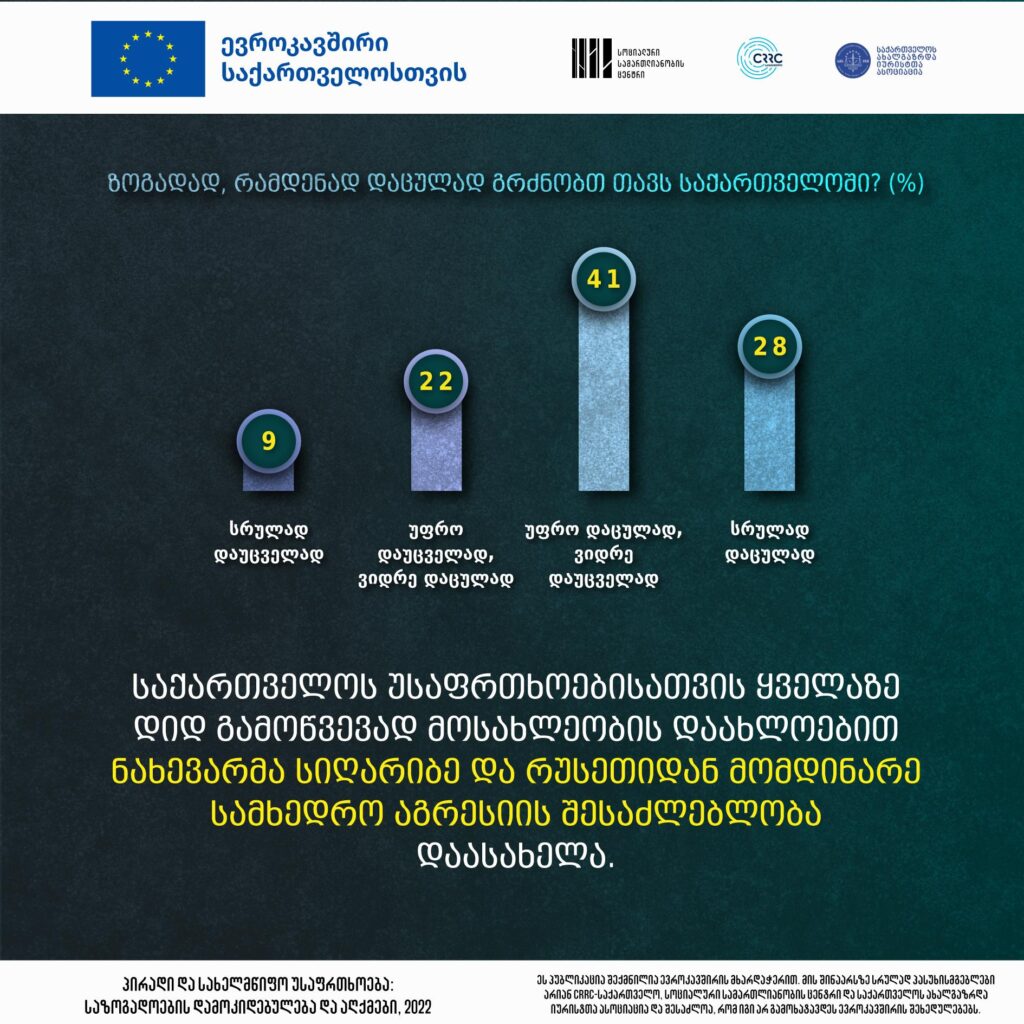CRRC-Georgia together with Social Justice Centre presented a research report examining Georgia’s National Security Architecture. According to it, 50% of respondents said that poverty is the biggest security risk along with Russia’s possible aggression against Georgia.
Other findings were: men, public sector employees, people living in villages, and those supporting the ruling party are more likely to feel secure in Georgia. Compared to 2012, feelings of security have not changed for one-third of the population, whereas 38% feel more secure now. Interestingly, women, people watching pro-oppositional channels, and people supporting opposition parties or no party are more likely to say that their sense of security has decreased compared to the pre-2012 period.
Part of the population feels safe in their everyday life due to the protection of law and the work of the security services in the country. For others, it is hard to feel safe in a country like Georgia, which faces so many internal and external threats. The majority believes there are significant shortcomings in the security system and reforms are needed. In addition, the higher the financial well-being of the household, the higher the likelihood that the respondent’s sense of security has not changed compared to the pre-2012 period. Respondents who said that poverty is the biggest security risk for Georgia, mostly think that the country is not doing so well in managing this risk. Those respondents who think that the main security risk for Georgia is the Russia-Ukraine War, report that Georgia is doing relatively well in mitigating this risk.
According to survey, in case of all four state agencies, television is the main source of information for the majority of people; social networks come next – on average 17% of the population gets information about the work of these agencies from social networks.
On the question what you would do if the security services violated your rights, only 8% responded that such a thing would not happen and 15% said: I will keep silent and endure because it is impossible for ordinary people to fight against this.
The survey has been produced with the assistance of the European Union. Fieldwork dates were from 27 May to 3 July, 2022 with computer-assisted personal interviewing (CAPI) method. They interviewed – 2,544 with the average margin of error on the country level: 2.1%.
The full report is here: https://cutt.ly/b7Da0tk














